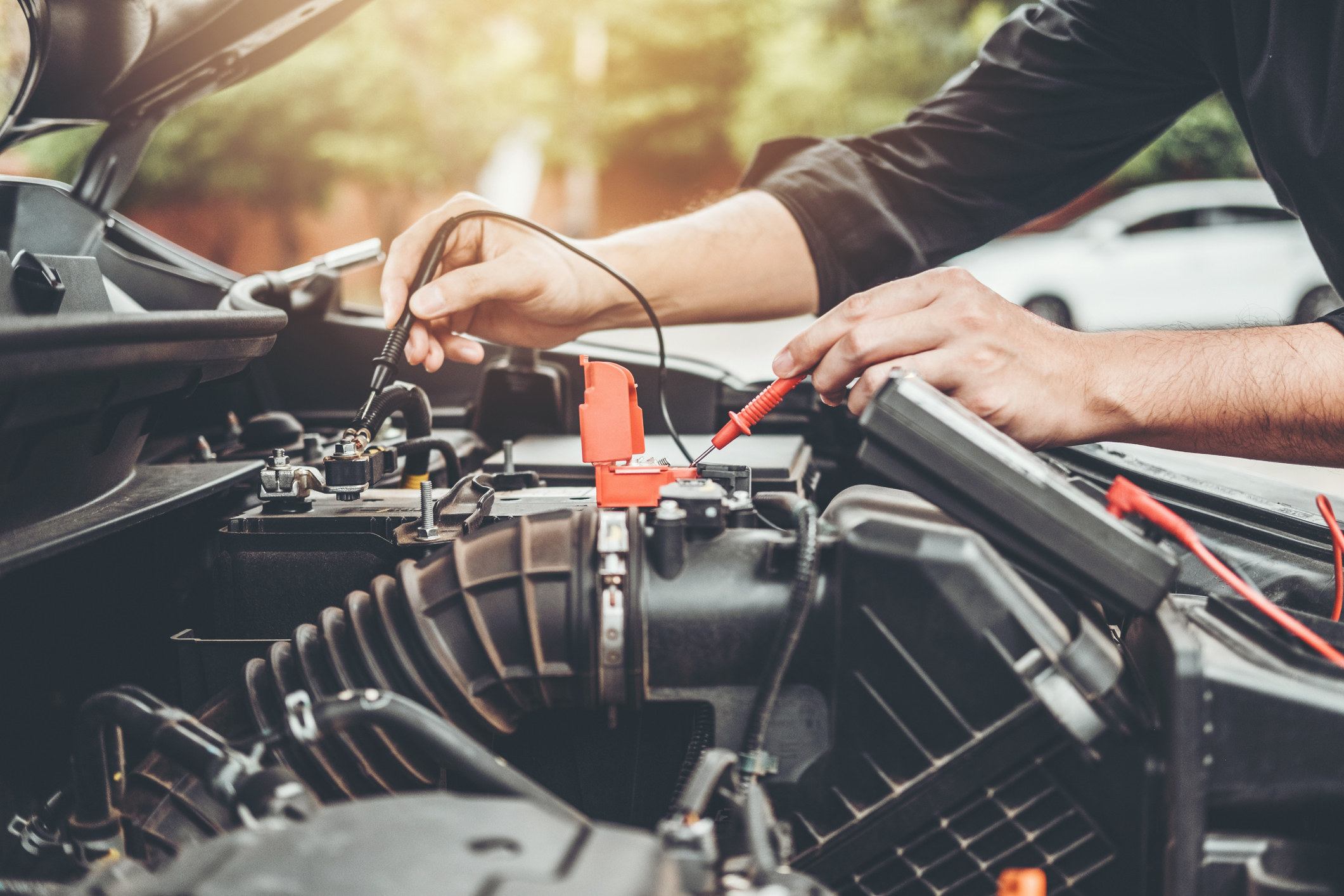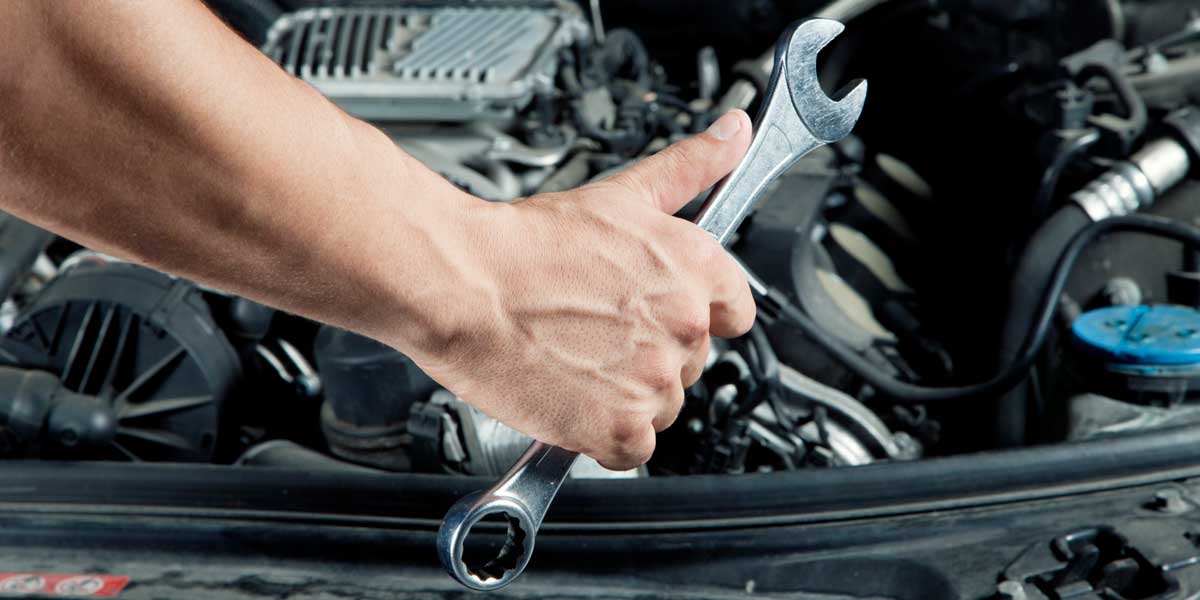All Categories
Featured
Frequently ignored, the timing belt plays an essential duty in maintaining your engine synchronized and running at peak efficiency. In this write-up, we'll discover the importance of timing belt substitute and why it's crucial to your engine's longevity.
What Is a Timing Belt and Just How Does It Function? The timing belt is a rubber or enhanced composite belt that connects the crankshaft to the camshaft in your engine. These two components have to operate in sync for the engine's shutoffs to shut and open at the right times during the combustion cycle. The timing belt regulates this synchronization, making certain that the pistons and valves don't collide.
![]()
As your engine runs, the timing belt continually transfers to maintain these parts aligned. Gradually, the belt goes through deterioration from friction, warm, and engine resonances. If it breaks or becomes loose, the crankshaft and camshaft will certainly no much longer be integrated, triggering engine misfires, loss of power, or, in the worst instance, severe engine damages.
Why Timing Belt Replacement Is Essential. Stops Serious Engine Damage: If the timing belt breaks while the engine is running, the pistons can ram the shutoffs, triggering bent shutoffs, damaged pistons, and even a broken engine block. This type of damage often requires costly and considerable repair work or an entire engine replacement. Changing the timing belt prior to it stops working is a basic and cost-effective way to stay clear of such tragic repercussions.
![]()
Ensures Smooth Engine Operation: A well-maintained timing belt aids maintain your engine running smoothly by maintaining the correct synchronization between the crankshaft and camshaft. When the timing belt is worn or stretched, the timing of the engine's shutoffs might be off, triggering engine misfires, rough idling, or delaying. Changing the timing belt at the suggested interval ensures that the engine runs as it was developed to, optimizing efficiency and effectiveness.
Saves You Money: Although replacing the timing belt might look like a substantial upfront expense, it's much more economical than the price of repairing or changing a damaged engine. The labor associated with replacing the timing belt is much less pricey than repairing engine components that are damaged because of a busted belt. Normal timing belt replacement can conserve you countless bucks in the future by preventing engine failure and pricey repair work.
Stops Unanticipated Breakdowns: If your timing belt breaks suddenly while you're driving, it can leave you stranded and call for costly towing. In the most awful cases, it can cause a full engine failing that provides your auto unusable. By replacing the timing belt according to the maker's standards, you reduce the danger of sudden malfunctions and ensure your automobile continues to be trusted throughout daily driving and long journeys.
When Should You Replace Your Timing Belt? The timing belt does not last permanently, and its replacement timeline can differ depending upon the make and design of your vehicle. A lot of producers recommend replacing the timing belt every 60,000 to 100,000 miles. Nonetheless, it is very important to consult your lorry's proprietor's manual for details guidelines, as some engines may require earlier or later substitutes.
If you're unsure concerning the problem of your timing belt, signs that it could require changing consist of unusual engine noise (such as ticking or slapping audios), trouble starting the engine, or bad engine efficiency. If essential., a professional technician can evaluate the timing belt for wear and tear and replace it.
Conclusion. The timing belt is a vital part of your car's engine, and its correct maintenance can conserve you from pricey repair work and engine damage. On a regular basis replacing the timing belt at the producer's advised periods aids make sure smooth engine procedure, avoids unanticipated failures, and inevitably prolongs the life of your engine. Do not overlook this important upkeep task-- by remaining on top of timing belt substitute, you're spending in the long-lasting wellness of your automobile.
What Is a Timing Belt and Just How Does It Function? The timing belt is a rubber or enhanced composite belt that connects the crankshaft to the camshaft in your engine. These two components have to operate in sync for the engine's shutoffs to shut and open at the right times during the combustion cycle. The timing belt regulates this synchronization, making certain that the pistons and valves don't collide.

As your engine runs, the timing belt continually transfers to maintain these parts aligned. Gradually, the belt goes through deterioration from friction, warm, and engine resonances. If it breaks or becomes loose, the crankshaft and camshaft will certainly no much longer be integrated, triggering engine misfires, loss of power, or, in the worst instance, severe engine damages.
Why Timing Belt Replacement Is Essential. Stops Serious Engine Damage: If the timing belt breaks while the engine is running, the pistons can ram the shutoffs, triggering bent shutoffs, damaged pistons, and even a broken engine block. This type of damage often requires costly and considerable repair work or an entire engine replacement. Changing the timing belt prior to it stops working is a basic and cost-effective way to stay clear of such tragic repercussions.

Ensures Smooth Engine Operation: A well-maintained timing belt aids maintain your engine running smoothly by maintaining the correct synchronization between the crankshaft and camshaft. When the timing belt is worn or stretched, the timing of the engine's shutoffs might be off, triggering engine misfires, rough idling, or delaying. Changing the timing belt at the suggested interval ensures that the engine runs as it was developed to, optimizing efficiency and effectiveness.
Saves You Money: Although replacing the timing belt might look like a substantial upfront expense, it's much more economical than the price of repairing or changing a damaged engine. The labor associated with replacing the timing belt is much less pricey than repairing engine components that are damaged because of a busted belt. Normal timing belt replacement can conserve you countless bucks in the future by preventing engine failure and pricey repair work.
Stops Unanticipated Breakdowns: If your timing belt breaks suddenly while you're driving, it can leave you stranded and call for costly towing. In the most awful cases, it can cause a full engine failing that provides your auto unusable. By replacing the timing belt according to the maker's standards, you reduce the danger of sudden malfunctions and ensure your automobile continues to be trusted throughout daily driving and long journeys.
When Should You Replace Your Timing Belt? The timing belt does not last permanently, and its replacement timeline can differ depending upon the make and design of your vehicle. A lot of producers recommend replacing the timing belt every 60,000 to 100,000 miles. Nonetheless, it is very important to consult your lorry's proprietor's manual for details guidelines, as some engines may require earlier or later substitutes.
If you're unsure concerning the problem of your timing belt, signs that it could require changing consist of unusual engine noise (such as ticking or slapping audios), trouble starting the engine, or bad engine efficiency. If essential., a professional technician can evaluate the timing belt for wear and tear and replace it.
Conclusion. The timing belt is a vital part of your car's engine, and its correct maintenance can conserve you from pricey repair work and engine damage. On a regular basis replacing the timing belt at the producer's advised periods aids make sure smooth engine procedure, avoids unanticipated failures, and inevitably prolongs the life of your engine. Do not overlook this important upkeep task-- by remaining on top of timing belt substitute, you're spending in the long-lasting wellness of your automobile.
Latest Posts
Recognizing Roof Warranties: What Homeowners Must Know
Published May 23, 25
1 min read
Explore Cut Costs on Car Maintenance with Montclare Auto Repair’s Exclusive Deals
Published May 21, 25
1 min read
Selecting the Right Roofing System Shade: Influence On Power Efficiency
Published May 19, 25
1 min read